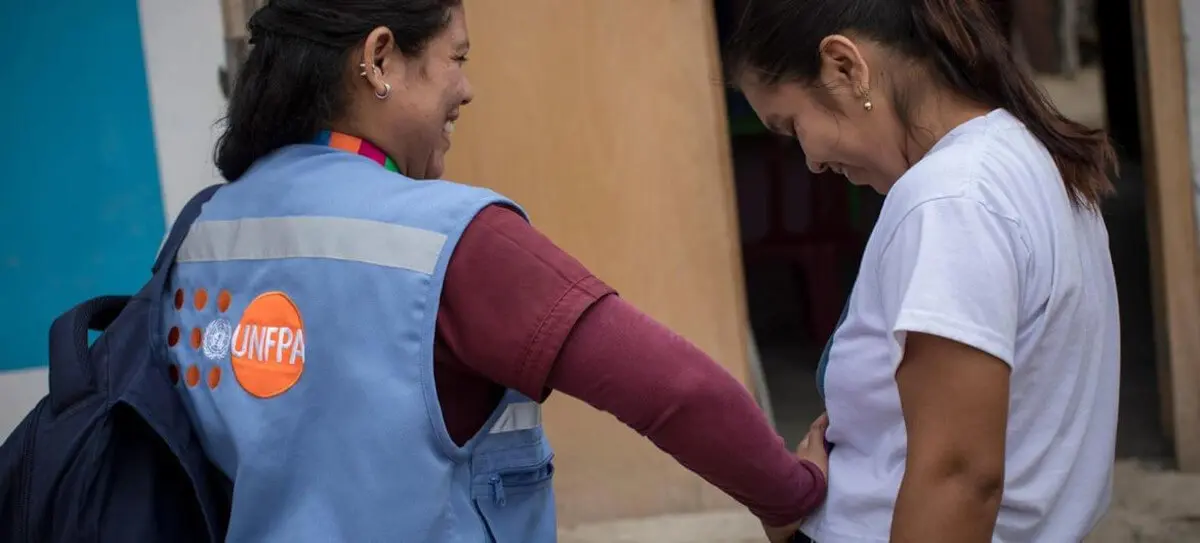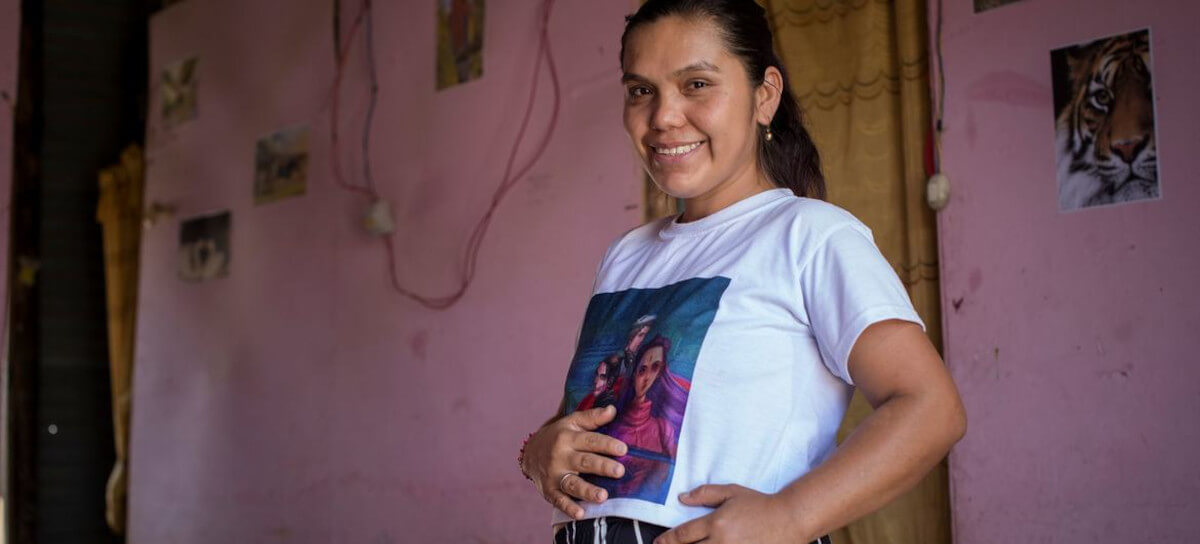Amidst floods in Peru, midwives go door-to-door, caring for thousands of people

In the early months of 2023, torrential rains flooded the streets of the town of Veintiséis de Octubre, located in the Piura district of north-western Peru, disrupting municipal services and leaving people trapped in their homes. For Miryam Coello, a 30-year-old mother of two, this added another level of anxiety to her pregnancy.
The unpaved streets in her neighbourhood were flooded and there was no money for alternative transport. Worse, with the floods came plagues of rats, flies and mosquitoes that brought with them the threat of waterborne diseases.
"We had to disinfect everything. But I still got dengue fever," Coello told the UN Population Fund (UNFPA), the agency for sexual and reproductive health.
Climate emergencies pose a particular danger to women and girls, cutting off access to essential sexual and reproductive health services, increasing the risk of gender-based violence and increasing vulnerability to disease. During the flood emergency in Piura, one in five maternal deaths was associated with or caused by dengue.
Coello had already been told that her pregnancy would require special attention, given that she had given birth to her first two children by caesarean section. Doctors warned that a third operation could be risky.
Still, she struggled to get the care she needed. Until she heard a knock on the door.
A life-saving initiative
Coello's visitor that day was a midwife who was part of a group organized under the UNFPA-supported Save Lives project, implemented with local partner Prisma.
With thousands of women like Coello unable to go to health centres because of flooding, economic hardship and caregiving, the Save Lives project brought care to their doorsteps.
"I had no one to leave my children with because my husband was away working as a fisherman," says Coello. "The group told me they would come to see me for check-ups".

Since May 2023, trained midwives have been visiting women like Coello in flood-affected regions such as Piura, Tumbes and Lambayeque. The midwives have been able to identify and support nearly 150 pregnant women with services such as prenatal check-ups, and enable more than 4,500 women to access sexual and reproductive health services.
"They tirelessly go door to door to offer sexual and reproductive health counselling and identify pregnant women. They haven't given up," says Bertha Liñán, an obstetric health coordinator whose health centre is collaborating with the UNFPA-supported project.
"They have helped us increase our staff and reach places where we couldn't before".
Routine check-ups change lives
For Coello, the midwives' care has made a big difference in her pregnancy. She no longer feels in danger. "My life has changed a lot since they came," she says.
Midwives save lives, yet there are too few of them in the world. According to UNFPA, there are about one million missing, despite the fact that they can meet about 90% of the world's need for essential sexual, reproductive, maternal, newborn and adolescent health interventions.
After consulting with midwives, Coello made the decision not to have any more children. "I made that decision with my husband as part of our family planning," she explained.








